What happens to the meat after a trophy hunt? Do people actually eat lions, giraffes, elephants or hippopotamus, or are these animals just killed for fun and then wasted?
These are not just interesting questions, but they also form the basis for so many misconceptions about hunting.
While many of these misconceptions and untruths are perpetuated by animal activists and anti-hunting organisations, they are starting to infiltrate the hunting community, with many hunters believing that trophy hunting and meat hunting do not align, and that the meat from a trophy hunt must be wasted because the hunter is only interested in the antlers or the head.
The myth goes that trophy hunters kill endangered and exotic animals for sport so they can hang a head on their wall back home and brag to all their mates about how tough they are.
Look, I’m not going to attempt to lie and say those people don’t exist. I’m sure, like anywhere, there are people that hunt for the bragging rights alone. But, for the vast majority of hunters we have met, nothing could be further from the truth.
If you have been misled to believe that trophy hunting is wasteful, and that it doesn’t play an important role in the overall conservation of wildlife, here are a few interesting facts for you to consider:
Hunters do not hunt endangered animals
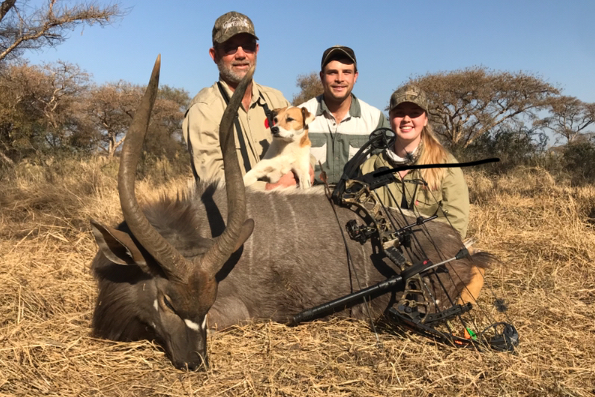
Let’s start with a real simple one. Trophy hunters are not shooting endangered animals.
For starters, it is illegal to shoot any animal without the proper tags and permits. If anyone is ‘hunting’ outside the law, they are not a hunter – they are a poacher.
Poaching and hunting are NOT the same thing.
Poachers have no concern for sustainable animal populations or conservation. Poachers seek only to take for their own purposes. Poaching exists all around the world – from the bogan hunters who illegally trespass on private land to illegally shoot a fallow deer out of season to the poacher who traps and slaughters an elephant or rhinoceros for their tusks and horns to sell on the black market.
Poaching is illegal.
Hunting, on the other hand, is carefully regulated and controlled. Tags are managed by governments and released based on sustainable numbers of wildlife. This is done in conjunction with game management specialists and is carefully calculated based on healthy herd numbers, available food sources, and even on where numbers need to be reduced. Tags and/or game licenses are then sold to hunters, with a large portion of that fee going back into wildlife conservation, herd management, and local employment.
There is science behind it and when done right, hunting plays a vital role in conservation management.
In countries like South Africa, where the vast majority of wildlife is privately owned and kept on private ranches, it is up to the owners to determine which animals can be hunted. They determine this by game management principals, carefully selecting the older males from the herd who have contributed all that they can to the gene pool and are at the end of their life span. This then makes way for the younger males to lead the herd and to refresh the bloodlines.
On the rare occasions when an endangered animal is hunted, like what happened when Corey Knowlton, an American trophy hunter, shot a rare rhinoceros, or when the rare and endangered markhor are hunted, the hunts are conducted as part of a limited tag system, with all the money from those hunts going back into breeding programs to increase the herds.
It is often a legal requirement to take the meat
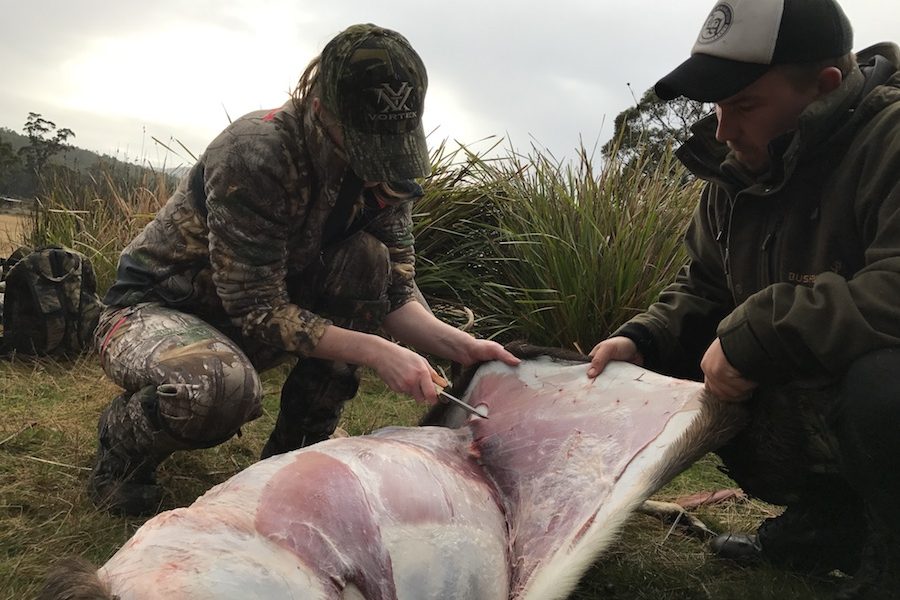
Another myth perpetuated by the anti-hunting brigade is that trophy hunters waste the meat and are only interested in the head.
But did you know that many countries require hunters to take the meat?
In America and Canada, you must remove all of the meat from the hunt site before you can remove the head, horns or antlers.
In South Africa, all of the meat is taken from all animals hunted. In fact, they go even further, and use every single part of the animal: meat, organs, intestines, hooves, bones, skin, blood… It all has a use.
Most of this goes for human consumption, and is either given to employees and their families, donated to local communities, or sold as game meat.
Where it is not used for human consumption, it is fed to other predators and omnivores.
Of course, there are always exceptions to this rule.
In Australia and New Zealand, most of our game species are considered invasive pests. There’s no legal requirement to do anything with the meat. That being said, the vast majority of hunters still take the meat and use it themselves, give it to family and friends, or at the very least, feed it to their pets.
While we cannot categorically say what happens to the meat on every trophy hunt that takes place around the world, as many outfitters have their own internal policies, we can talk about what happens on our hunts.
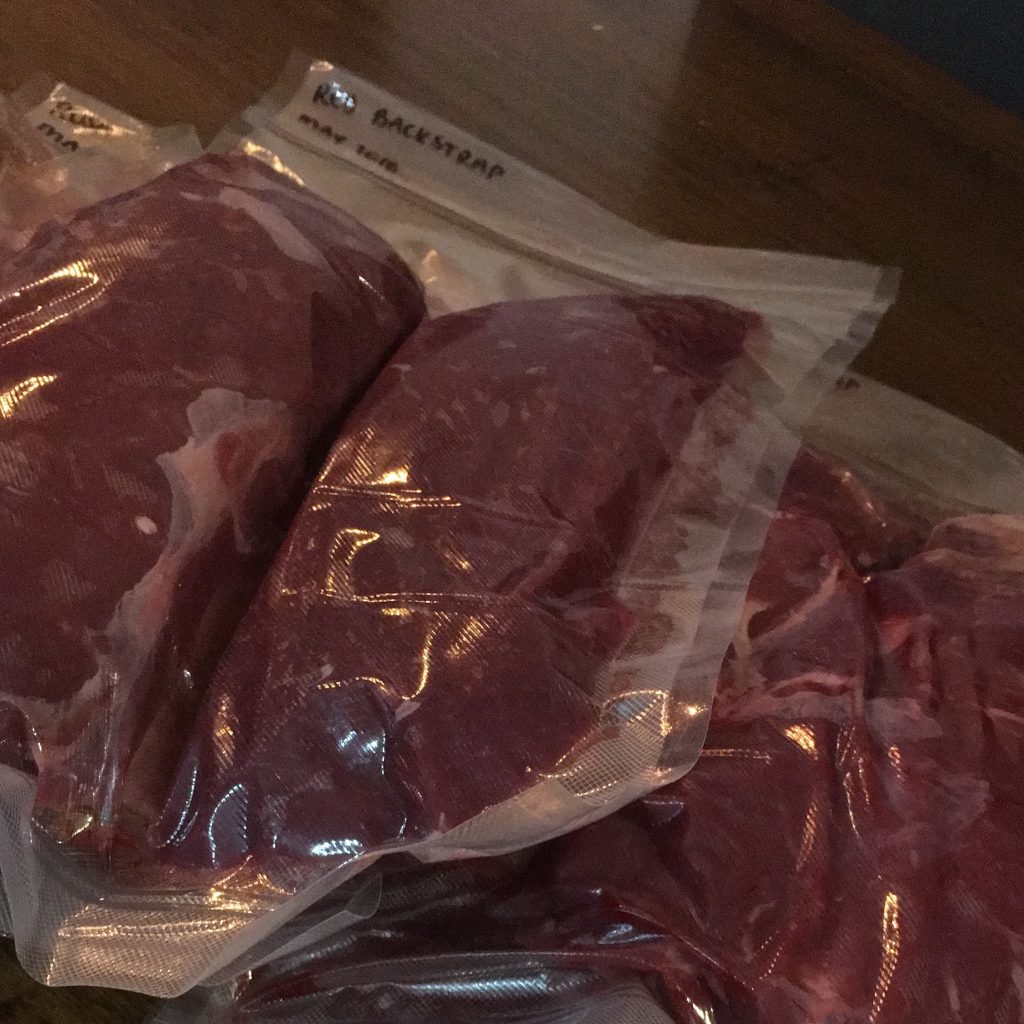
We live in Australia, which has incredibly strict quarantine laws on what can and can’t be brought into the country, and unfortunately, meat from anywhere outside of Australia falls under that list of banned items.
However, if we are hunting in Australia, where we live, we take all the meat home with us, wet-age it in our fridge and use the meat in a variety of wild game recipes. We estimate that around 80 percent of our meat consumption comes from wild harvested meat, fish and seafood. We also donate a lot of the meat to our family and friends, who love receiving quality, organic game meat for their own table. And whatever we do not use ourselves, we feed to our pets.
When we are hunting in other countries, we adapt slightly, as we cannot take the meat home with us.
But one thing we can say is that the meat never goes to waste.
When we hunt in New Zealand, we always eat the backstraps of any animal we hunt. The outfitter keeps some of the remaining meat for his family, or to feed other visitors to the property (all meals are included in the hunting packages, and we have had some awesome game food served to us). The remainder, we donate to a local Maori village, who use it to feed their large extended families.
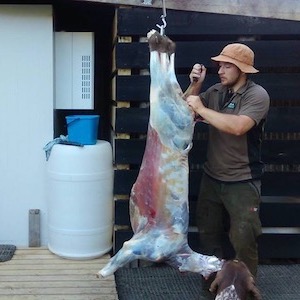
When we hunt in Africa, what isn’t cooked immediately on the braii (BBQ) over the next few days is either given to the trackers and other employees, donated to the local village, or sold into the local game meat market. The cheaper cuts and offal go to the local, bush butchers, while the premium cuts end up on the table of top end restaurants like Carnivore in Johannesburg. Anything else often winds up as biltong or drywors, as there is a massive market for game meats in South Africa. All the skins and bones are also used by locals. In fact, we are constantly surprised at how industrious the locals are at using every single bit of any animal that is killed.
Meat is meat
Most of the negativity towards trophy hunting comes from people in the west who cannot fathom the concept of eating anything that is not readily available in their local supermarket or butchers.
The idea of eating lion, giraffe or elephant is so foreign to them that they have convinced themselves it cannot possibly be eaten. Therefore, anyone who kills those animals is evil.
There’s an even smaller percentage who cannot stomach the idea of eating any meat at all. These are the militant vegans who believe the world should adopt a plant-based diet.
Unfortunately, both of these opinions come from a position of privilege and are just not realistic when applied to the rest of the world.
According to the World Bank Development Indicators, almost 50 percent of the world’s population earn less than $2.50 a day, with another 30 percent earning under $10 per day.
That means the staggering majority of the world does not have the luxury we have in the West to be fussy about the foods we eat. They must survive on whatever foods they can easily get their hands on.
On our last hunt, we asked our tracker during lunch what he was eating. He looked blankly at us and said ‘it’s meat!’
He had no idea what kind. Nor did he care. It was simply food to sustain him through the day.
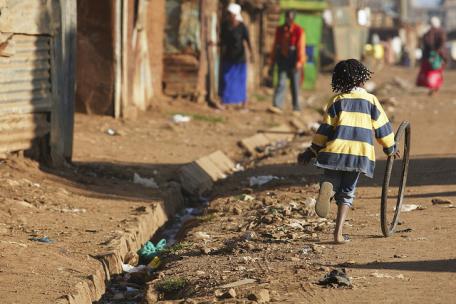
What we see as a majestic elephant, the locals see as nearly 4000kgs of protein that will feed an entire village for months.
Legal, regulated hunting not only puts food in the bellies of the local communities – it’s also one of the major contributors to employment in rural areas, where the vast majority of Africans live. When that dries up, the locals resort back to bush hunting – or poaching – either for meat they can consume themselves or animal parts they can sell on the black market.
It’s one of the hardest concepts for non-hunters to get their minds around – that hunting, for all its seeming ‘death and destruction’ actually breathes life into local communities.
It has also been proven to be one of the most successful ways to manage wildlife herds, and raise much needed funds for conservation.
Trophy hunting is not wasteful. When properly regulated and managed, it provides food, employment and economic benefit to the local people and results in wildlife numbers flourishing.
What is I Am Hunter?
I Am Hunter has a lofty goal to change the way hunting is perceived in the community. Hunters can find a wide range of tools and resources to help them improve their skills and become positive role models and advocates for the hunting community.
I Am Hunter is a member-supported website. By paying a small monthly or annual fee, members help keep most of the content free, which in turn helps to spread a positive message about hunting with the wider community.
In return, members enjoy exclusive rewards and benefits including member-only content, discount codes, and giveaways.
Related content
Our other channels
Get our newsletter
Get our free monthly newsletter direct to your inbox
Listen on iTunes
Listen to our podcast on iTunes.
TV series
Watch I Am Hunter episodes on My Outdoor TV (MOTV)
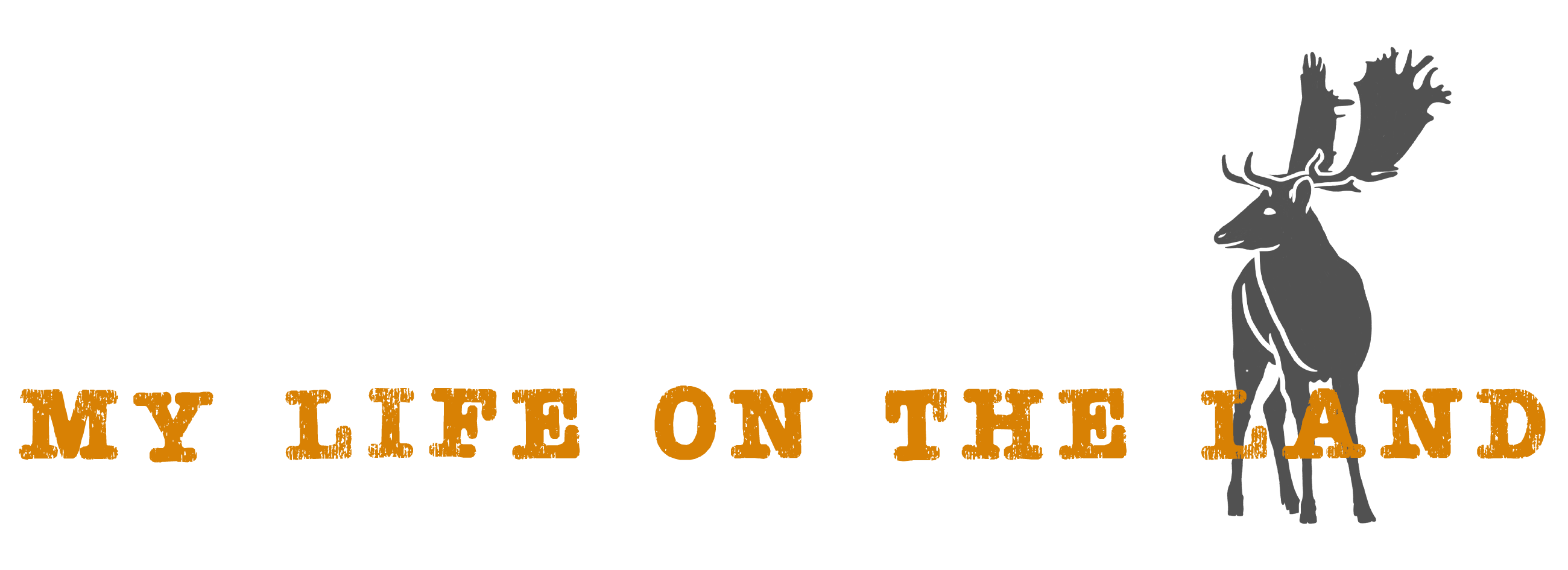
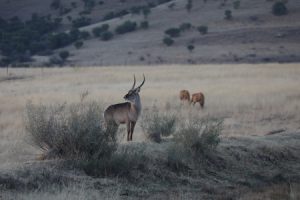
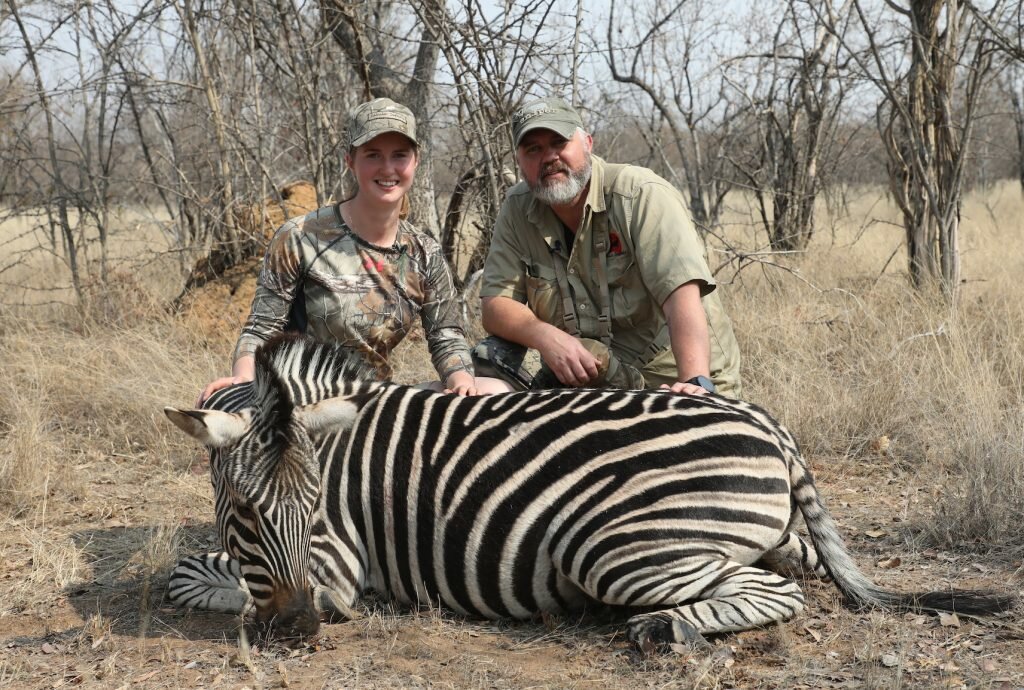
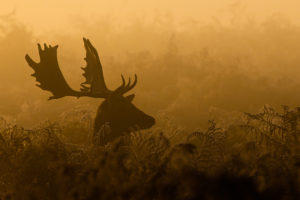
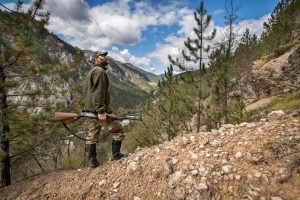
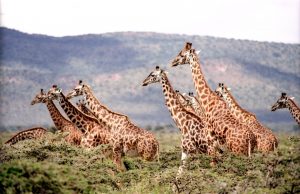
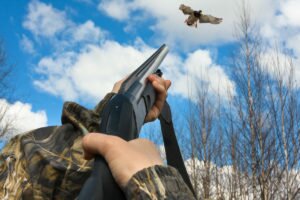

7 thoughts on “What happens to the meat after a trophy hunt?”